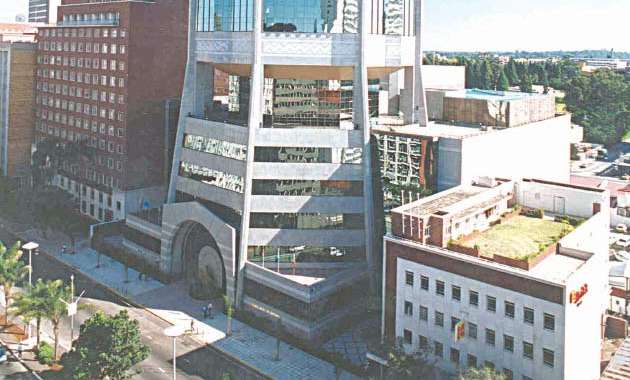RBZ scraps rand, euro forex payouts

 Bulawayo Bureau
Bulawayo Bureau
The Reserve Bank of Zimbabwe (RBZ) has with immediate effect scrapped the apportionment of foreign exchange receipts into rand and euros and applied the 5 percent export incentive in US$ into authorised dealers’ RTGS accounts for exports.
As part of bold foreign exchange management measures aimed at stimulating the economy, the apex bank removed the 10 percent threshold on nostro/foreign accounts balances as well as a 15 percent threshold on cash holdings by banks.
Anchored on the broader need to enhance the ease of doing business, the move is expected to improve exporter viability and competitiveness while further enhancing the spread of liquidity generated from exports of goods and services.
As such, it advised authorised dealers that 50 percent of all new foreign exchange receipts from the export of goods and services denominated in US$ shall be transferred to the Reserve Bank immediately on receipts of funds.
In a statement, the bank said the remaining 50 percent would be credited into the exporters’ foreign currency account (FCA) in US$.
“On receipt of the 50 percent export proceeds into its nostro account, the Reserve Bank shall immediately credit the same amount plus the five percent export incentive/bonus in US$ into the authorised dealers’ RTGS account for the account of the exporter,” reads the statement.
“Accordingly, the requirement for the apportionment of 50 percent of foreign exchange receipts into 40 percent ZAR and 10 percent EUR, has been removed with immediate effect.”
Where the exporters’ foreign currency earnings based on Form CD1 acquittals are denominated in other currencies in the multi-currency basket, said RBZ, such proceeds shall be credited 100 percent into the respective exporter’s corporate FCA.
“Similarly, the 5 percent export incentive paid into US$ FCA shall also apply to such exporters on their foreign currency earnings,” it said.
In a bid to facilitate payouts of Diaspora remittances, a critical source of liquidity for Zimbabwe, the RBZ advised that authorised dealers that money transfer agencies or authorised dealers with limited authority who make cash withdrawals for the purposes of paying remittances, would not be restricted by cash withdrawal limits.
It said the measures would also energise the production and marketing of tobacco and gold, which are key export earners for the country.
With effect from Tuesday, the RBZ said all proceeds from tobacco drawdowns or offshore facilities disbursed for purposes of purchases on the tobacco auction floors by merchants would be immediately transferred to the central bank’s nostro account.
Upon confirmation of receipt of drawdown proceeds the Reserve Bank said it would immediately credit the same amount in US$ to the authorised dealer’s RTGS account for the merchant’s account to facilitate payments to the various beneficiary tobacco farmers’ accounts.
The merchant is also eligible for the 5 percent export incentive based on the value addition or processing component, upon full acquittal of the Form CD1.
Also included in the foreign exchange priority list guideline are remittances of rental income from properties owned by non-resident Zimbabweans and foreigners who would have purchased properties using offshore funding that have been transferred through normal banking channels.
This also covers remittance of pension income from non-resident Zimbabweans who formally emigrated as well as importation of packaging material no available in Zimbabwe.
The bank stressed the need for dealers to render due diligence and good client services when disbursing cash to these entitities for purposes of efficiency.
The RBZ said the statement has been made in reference to the exchange control directives dated May 5 and 6, 2016, which operationalised the measures announced by RBZ governor John Mangudya last Thursday.
The measures were anchored on the promotion and sustenance of the multiple-currency system as well as dealing with the cash shortages.








Comments